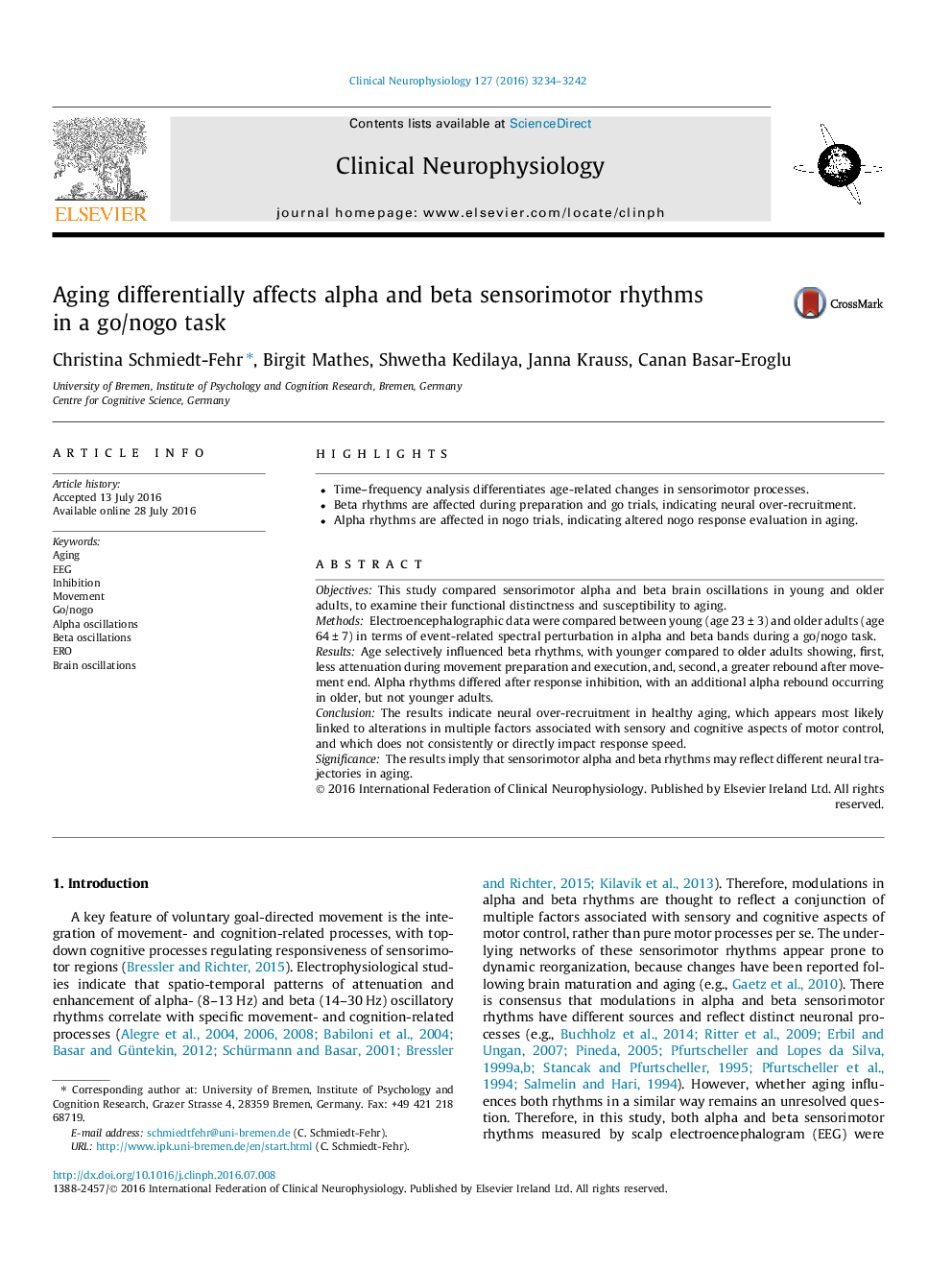| Article ID | Journal | Published Year | Pages | File Type |
|---|---|---|---|---|
| 5627872 | Clinical Neurophysiology | 2016 | 9 Pages |
â¢Time-frequency analysis differentiates age-related changes in sensorimotor processes.â¢Beta rhythms are affected during preparation and go trials, indicating neural over-recruitment.â¢Alpha rhythms are affected in nogo trials, indicating altered nogo response evaluation in aging.
ObjectivesThis study compared sensorimotor alpha and beta brain oscillations in young and older adults, to examine their functional distinctness and susceptibility to aging.MethodsElectroencephalographic data were compared between young (age 23 ± 3) and older adults (age 64 ± 7) in terms of event-related spectral perturbation in alpha and beta bands during a go/nogo task.ResultsAge selectively influenced beta rhythms, with younger compared to older adults showing, first, less attenuation during movement preparation and execution, and, second, a greater rebound after movement end. Alpha rhythms differed after response inhibition, with an additional alpha rebound occurring in older, but not younger adults.ConclusionThe results indicate neural over-recruitment in healthy aging, which appears most likely linked to alterations in multiple factors associated with sensory and cognitive aspects of motor control, and which does not consistently or directly impact response speed.SignificanceThe results imply that sensorimotor alpha and beta rhythms may reflect different neural trajectories in aging.
